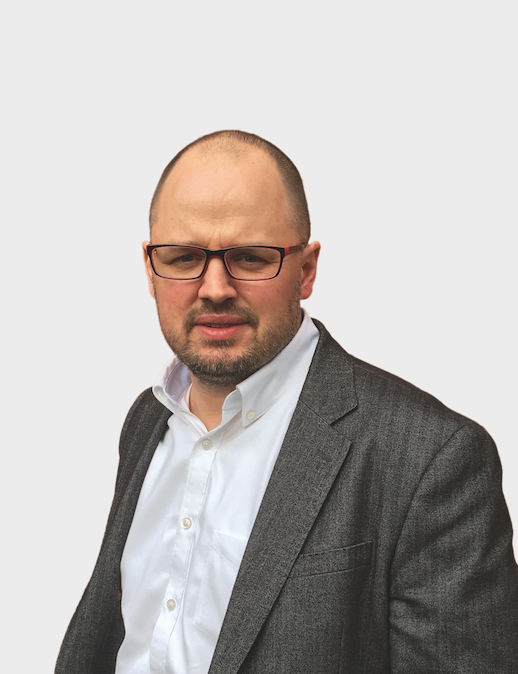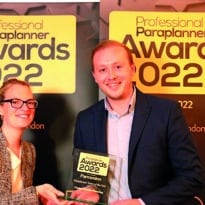In March 2018 Jonny Stubbs had just taken on the role of head of Technical Support at the LIFT-Financial Group, “my first proper management position”, tasked with growing and developing the in-house paraplanning team.
At the time the team consisted of five paraplanners, including Jonny; since then, largely through external recruitment, the team has grown to nine, which he describes as “about right”. From now on, he hopes to build the team through internal development.
The firm, which is based in Altrincham in Cheshire and primarily deals with high net worth clients, including professional sportspeople, has been running a graduate training scheme for seven years to bring on its own paraplanners and advisers. Jonny explains that the firm has just reviewed the scheme to make it more effective for the business.
“It was a five-year programme where typically the graduate spent two years as an administrator, two years as a paraplanner and a year as a trainee adviser, before becoming a fully-fledged financial planner. We’re changing that format to make the process more flexible with a view to introducing the graduates to the various aspects of the overall role sooner. So they may be working in admin but they may also be doing some basic report writing. It means they will be learning more, faster.
“We’re also introducing specific training outside of the core work, such as role playing, technical, file review, compliance and suitability assessment training. It’s fast tracking them to where they can have greatest effect in the business.
“It is still a five-year programme,” he adds, “because we want our advisers to be chartered when they see clients, but it’s also about building their experience. We want them to know every aspect of the financial advice process, including working with them on the softer skills they will need to do the job in the right way.”
Currently, the firm has around 90 employees, including 17 graduates in the scheme. “That’s a big investment from us and I don’t know of any other financial planning business, outside of networks and nationals, that has committed so much to bringing new people into the industry.
Changing role
When Jonny joined the firm he stepped into a newly created role, which, unsurprisingly, has developed in the interim period.
“A big part of my job has been creating the larger team as well as an environment where paraplanners want to stay.” In addition, he has taken on the running of the firm’s transfer servicing team, the admin unit focused on obtaining data from providers in order to effect pension transfers. “It’s technical administration team of seven, including a team leader.”
In addition to the paraplanning team, Jonny has taken on the running of the firm’s transfer servicing team, the admin unit focused on obtaining data from providers in order to effect pension transfers. “It’s technical administration team of seven team members, including a team leader.”
Project work also has been a significant part of the role. A major project delivered has been the redesigning of the Client Review process, as Jonny explains. “What we wanted to do is make the entire process pro-active, so the advice team has the full picture of the client in front of them as early as possible. So now we begin around six weeks before the review is due.
“We start by sending the clients a pre-meeting pack, with a client-friendly fact find to ascertain whether there have been any changes in their situation and to update details, warming them up to the forthcoming meeting. We also send any paperwork the client needs to read prior to the meeting.” The technical admin team is core to this, he adds, sending out the packs and keeping track of things. “We also use Intelligent Office in the process so the clients can fill in the forms online.
“At the same time a paraplanner will do a file check to ascertain what planning considerations need to be looked at, whether there are any pieces of information needed, and they will put together an agenda for the meeting.
“This way both our team and the client are more fully prepared and the adviser can spend more time talking to the client rather than dealing with paperwork. It also means when the adviser comes back from the meeting the team knows what they need to get on with.
“Being pro-active in this way means the adviser can focus on engaging the client rather than obtaining information or getting forms filled in.”
Centralised retirement proposition
Jonny has also been involved in the development of the firm’s centralised retirement proposition (CRP). “There is nothing in COBS etc to say you need a CRP but we felt it was a useful means to formalise what we were doing and recognise that this part of the client’s journey can be more complex and so take more work to deal with,” he says.
“It’s a means to acknowledge the difference of decumulation in approach to accumulation, that you’re collecting different KYC information where it is required, relevant research and analysis is undertaken and through the report, that the client understands what you are recommending and why. It’s a means to document the processes to show that as a firm we acknowledge that difference and the relevant risks involved and that there are formal procedures in place.”
There’s a balance between creating business efficiencies and the personal approach to the client, he adds. “Where things can go wrong in financial services is where people try to make things too conveyor belt. You’ve always got to be able to step off the conveyor belt with every single client because every client’s circumstances are going to be different.
“And it’s important to stress I’ve had great support on the project side from other people within the firm. You couldn’t do some of this in a smaller firm, you need that extra support.”
Original goals
One of Jonny’s goals in March 2018 was to put together a style guide for the paraplanning team. This has grown into a more formal procedures document, stating how the paraplanning team works, setting down the approach to research, analysis and report writing, etc, and setting out standards in terms of style, grammar and punctuation.
“The structural change work I’ve been involved with has taken precedent over the past 18 months so this has been a work in progress,” Jonny says. “But it’s needed because every firm does things differently and things change, so you need to have something written down for people to refer to.”
Another goal in 2018 was to try to use technology to make the paraplanning process more efficient. “This is another work in progress but we’ve been able to make small day-to-day improvements, for example, using templates in Intelligent Office and pulling in data from the back office which saves keying in that data to a suitability report.
“We’re also lucky to have a couple of guys who are wizards with Excel and they have put together some really clever spreadsheets which have helped us automate things like MiFID II charges, fund research and so on.”
He also wanted to have the firm’s paraplanners work more on a one-to-one basis with the advisers.
“There is an ongoing debate in paraplanning circles, whether one-to-one or a pooled paraplanning approach works best. We are now almost one-to-one with all our core advisers but we also operate a pooled approach for overflow work or where an adviser’s workload doesn’t need that full-time support.
“I think the one-to-one approach helps build good working relationship between the paraplanner and the adviser but I also like the pooled approach because of the flexibility it gives me within the team when we need it. Having built up the bigger paraplanning team we are now able to do that.”
Plans for 2020
So, looking ahead, what’s on his agenda for 2020? “Eighteen months ago there was me and four paraplanners; now there are 17/18 people providing a core service in the business so clearly there will be more of a focus on management. And it’s fun to see your team grow and things heading in the right direction.
“For next year I want us to have really slick report writing system, so we can become quick and efficient using the tools available.
“There’s much more work to do on the Graduate scheme, as we roll out the changes. That’s exciting because I do think we’re doing something different to others with it.
“From a business perspective there’s lots more we want to tackle as well, so I know I’m going to be kept busy for some time to come.”





























